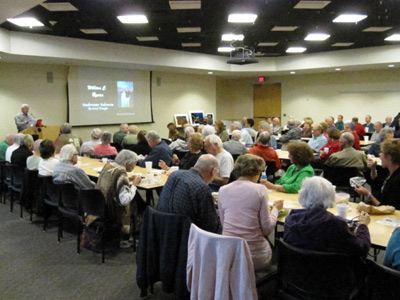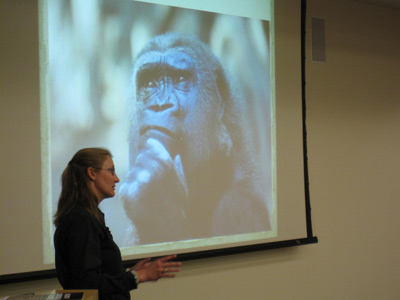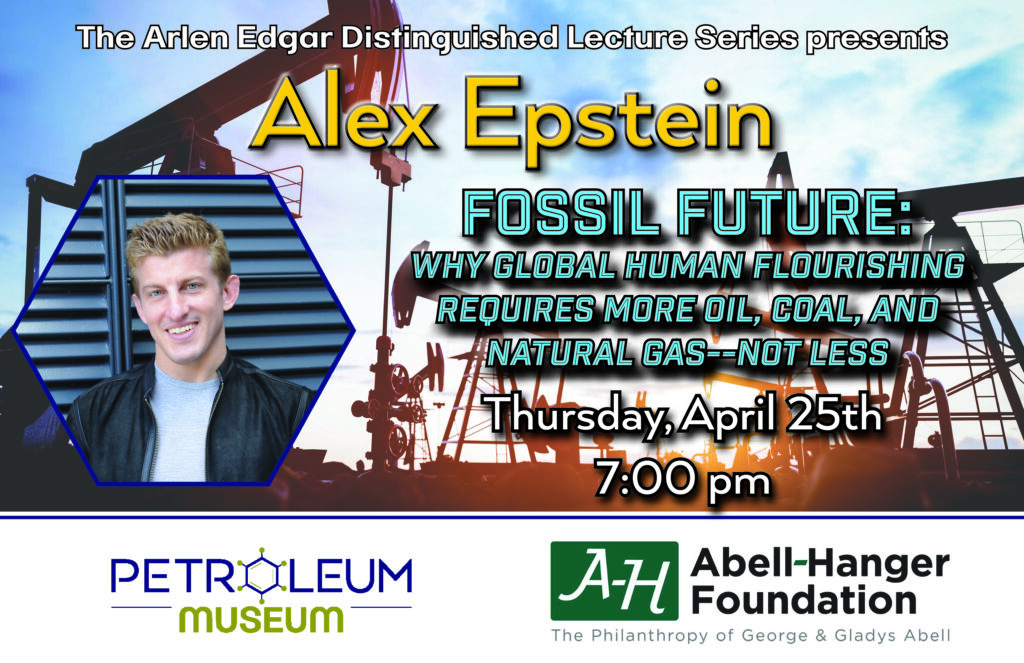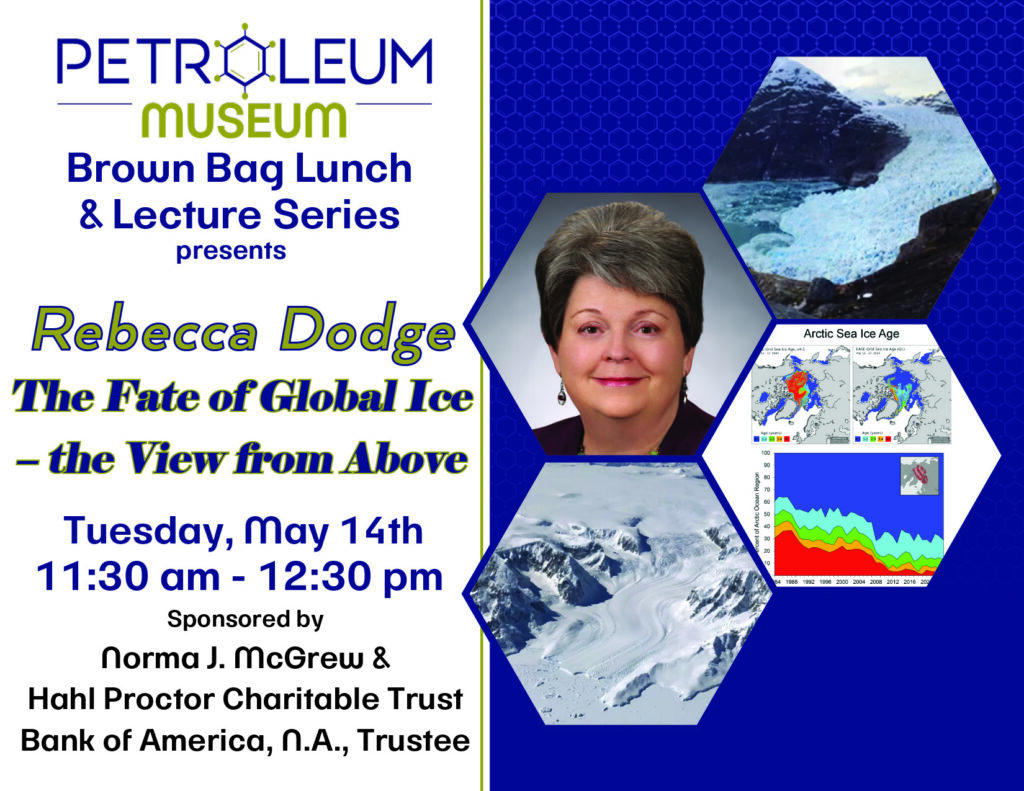Lectures at the Petroleum Museum
Arlen Edgar Distinguished Lecture Series – underwritten by Abell-Hanger Foundation
The Arlen Edgar Distinguished Lecture Series brings explorers, photographers, scientists, and historians from all over the world to the Permian
Join us at the Petroleum Museum on April 25th as we partner with the Abell‐Hanger Foundation to welcome philosopher and energy expert Alex Epstein for the Arlen Edgar Distinguished Lecture Series. As a Duke‐educated academic who has spoken at dozens of Fortune 500 companies and prominent universities, including Harvard, Yale, and Stanford, Epstein argues that “human flourishing” should be the guiding principle of energy and environmental progress. Alex Epstein will present findings from his book Fossil Future: Why Global Human Flourishing Requires More Oil, Coal, and Natural Gas—Not Less. In this talk, Epstein will make the case that if we look at not just the negative side‐effects of fossil fuels but also their benefits, humanity should actually use more fossil fuels in the decades to come. The path to global human flourishing, Epstein will argue, is a combination of using more fossil fuels, getting better at “climate mastery,” and establishing “energy freedom” policies that allow nuclear and other truly promising alternatives to reach their full long-term potential. Join us for this vital lecture about energy and our future.
Brown Bag Lunch and Lecture Series – sponsored by Norma J. McGrew & Hahl Proctor Charitable Trust, Bank of America, N.A., Trustee
The Petroleum Museum’s Brown Bag Lunch and Lectures give our community the chance to visit with authors, scientists, artists, and historians who recount the petroleum industry’s beginning, present, and future, along with topics of local and historical interest. These lectures are sponsored by Norma J. McGrew & Hahl Proctor Charitable Trust, Bank of America, N.A., Trustee. Admission is always free. Drinks and dessert are provided.
May 14th – Speaker: Rebecca Dodge – The Fate of Global Ice – the View from Above
The eyes of NASA’s earth resource and environmental satellites observe the entire world with the purpose of identifying or predicting the changes that the earth will face over the next several decades, whether they are natural or human-induced. Identifying changes and monitoring trends in the atmosphere, in the oceans, and on the land involves numerous satellite sensors and platforms. Land ice and sea ice impacts are documented by airborne and space-based sensors, which can monitor vast remote regions as melting occurs. Ice shelf disintegration and glacial retreat globally will be highlighted in this presentation, using imagery from a variety of Earth Observation satellites including those specifically designed to monitor the cryosphere.
Check our News and Events for the upcoming schedule.








